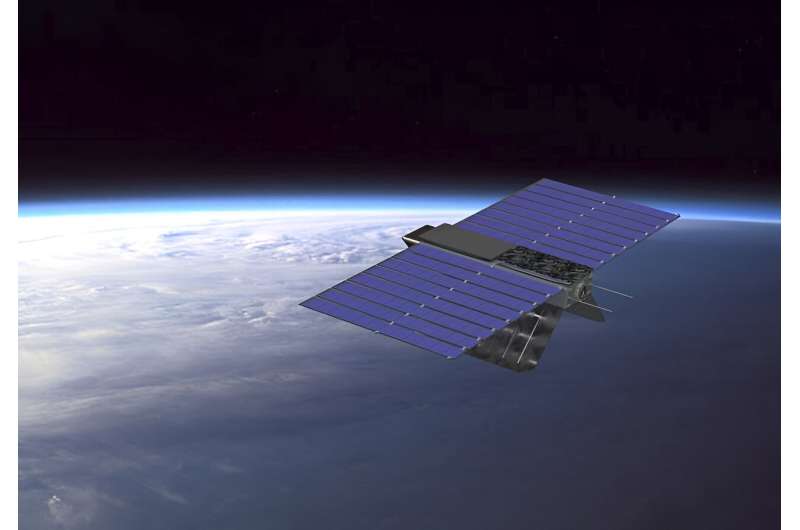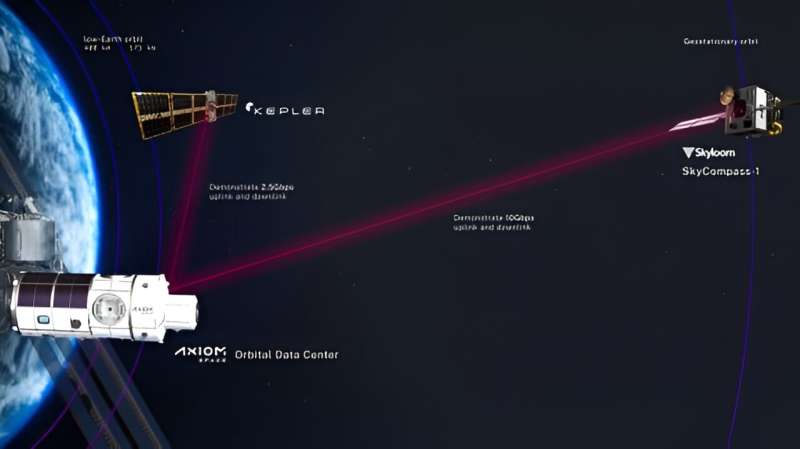This article has been reviewed according to Science X's editorial process and policies. Editors have highlighted the following attributes while ensuring the content's credibility:
fact-checked
peer-reviewed publication
trusted source
proofread
Could we put data centers in space?

Artificial intelligence has taken the world by storm lately. It also requires loads of band-end computing capability to do the near-miraculous things that it does. So far, that "compute," as it's known in the tech industry, has been based entirely on the ground. But is there an economic reason to do it in space? Some people seem to think so, as there has been a growing interest in space-based data centers. Let's take a look at why.
Space-based data centers have several advantages over ground-based ones. The first and most obvious is the near-unlimited amount of space in space. Second, there are plenty of potential options for novel power and cooling technologies that can't exist back on Earth. Third, using a space-based data center as a relay point for information could cut down on lag in data transfer between continents. Let's look at each in turn.
One of the significant constraints for data centers is space—they require large amounts of it, and it is expensive in the areas where they are most needed (i.e., next to large population centers). The tech giants have massive budgets associated with real estate for data centers, and that amount will only continue to grow as their computational requirements increase.
On the other hand, building a modular data center in space, with each launch adding additional computing power, is a reasonable way to infinitely expand a company's hardware resources without the constraint of a physical location.
Data centers would also have access to novel power and cooling technologies in space. They could utilize solar panels directly attached to them to harness unlimited green energy, and ones in a high enough orbit could be powered effectively all the time, no matter weather conditions or Earth's rotation. Power satellites run off a similar idea, and the underlying technology is already there; it hasn't been applied to this use case yet.

Many data centers also use water cooling systems. While water is heavy and expensive to launch into orbit, plenty of asteroids have enough water on them to supply millions of data centers with all the cooling they need.
A recent paper in Symmetry from researchers in South Africa looked at this process and found several asteroids with relatively close trajectories that could supply orbiting data centers with enough water to last centuries.
Space-based data centers could also allow for fast transmission between two points on the globe without sending data over a complicated path from one continent to another. Directly linking two computers is easier if they have a line of sight to the same relay point, such as a data center floating around the Earth.
Using that data center to relay information between the two, similar to what Starlink currently does with satellite internet technology, would solve latency problems between far-away locations.
But there are also some hurdles. Data transfer rates on satellites aren't up to speed with modern ground-based technologies, though that is consistently improving every year thanks to efforts like Starlink. Getting the hardware into orbit poses an obvious challenge and expense. However, that bar might be better lower with the continual development of Starship and its low-cost launch capability.
Finally, coordinating across different governments, especially regarding wireless bandwidth, can be tricky, but without that coordination, the ability to talk across borders is severely limited.
None of those limitations are insurmountable; technologists and investors seem to realize that. As our own Alan Boyle reported in March, a company called Lumen Orbit raised $2.4 million only three months after being founded to bring data centers to space.
Axiom Space, which we've mentioned in several articles in the last few years, is also partnering with Kepler Space and Skyloom to develop the world's first functional space-based data center.
With this increased interest, it seems only a matter of time before some of the computing power that is enabling the AI and computing revolution makes its way into orbit. But for now, the question remains: who will be the first one to do it?
More information: Ayodele Periola et al, Space-Based Data Centers and Cooling: Feasibility Analysis via Multi-Criteria and Query Search for Water-Bearing Asteroids Showing Novel Underlying Regular and Symmetric Patterns, Symmetry (2023). DOI: 10.3390/sym15071326
Journal information: Symmetry
Provided by Universe Today




















